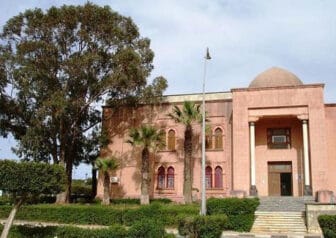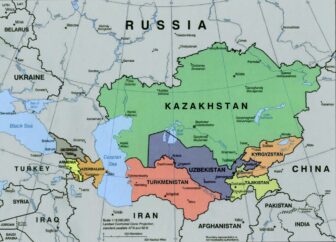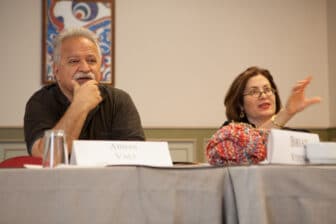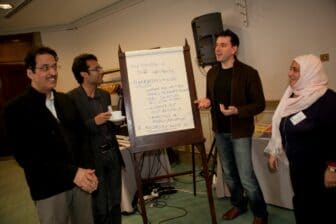Browse Topics
Categories
Format
Multimedia
Speakers Series

Expanding Opportunities for Libyan Higher Education
Following Libya’s parliamentary elections in 2012 and the establishment of a new government, the new representatives announced a bold vision for the future of Libyan higher education. The aim: to create world class universities (WCUs) that would help diversify Libya’s economy and turn Libya into a hub of academic achievement. Using its significant oil resources, […]

Decoding Perceptions in U.S.-Turkey Relations
Perceptions have weighed heavily on U.S.-Turkey relations and how American and Turkish leaders and the general public see one another. Despite an often robust bilateral relationship with the US, Turkish public opinion has always been skeptical of U.S. involvement in Turkey and the Middle East. On the other hand, U.S. public opinion on Turkey is usually uninformed […]

Central Asia’s Regional Challenges
Central Asia is the region that isn’t exactly a region. The republics trade globally, but relatively little with one another. Their border and customs policies remain highly dysfunctional despite well‐meaning international aid programs. And much of the new infrastructure in the region has developed to serve national territory, rather than to better connect states to one another. Central […]

Iraq’s Foreign Policy and Economic Challenges
Iraq is in a critical stage of political and economic development, and its growing potential as a regional lynchpin runs alongside great domestic uncertainty, divisions and soul-searching about where the country is headed. Where is Iraq headed as a nation, and what can next-generation Iraqi leaders do to bridge regional and sectarian divisions? A young […]

Foreign Policy and Competing Mediation in the Middle East and Central Asia
July 2012 The political upheavals in the Middle East have shifted the foreign policy landscape in the region. States like Turkey, Qatar and Saudi Arabia are implementing assertive foreign policies in a region that was arguably dominated for decades by U.S. foreign policy. What comparative advantages do aspiring regional powers have? Will they compete with […]

Oral History in the Middle East and Central Asia
How can we deploy oral history more globally to sustainably foster partnerships and exchanges of ideas across international and cultural boundaries? How can digital technology make oral history more of a public resource in the Middle East, Central Asia and the United States? What are the benefits and limitations of using memory to diagnose and […]

The Economies of the Arab Spring
October 2011 Until recently, the economic dimensions of the Arab Spring have played second fiddle to high-order political issues. Policymakers and pundits have focused much more on the posturing of the Supreme Council of the Armed Forces (SCAF) in Egypt or on debating whether an Nahda will upend the secular order in Tunisia. Less attention […]

The Future of Afghan-U.S. Relations: Development, Investment, and Cultural Exchange
Afghan-U.S. relations are entering a new and uncertain period. While many U.S. policymakers are buoyed by the death of Osama Bin Laden in Pakistan and focused on completing the troop drawdown in 2014, there is no clear vision of what America’s future engagement with Afghanistan will look like. The sole certainty is that the United States […]

Quality Assurance in Higher Education: An International Dialogue on Progress and Challenges
[doc id=17153]Today, with the effects of globalization and with dramatically expanded access to higher education, the quality of education has become more crucial for national development and competitiveness as well as for individual success. The rise of cross-border education, including branch campuses, student and faculty mobility, and partnerships between universities in different countries, also raises […]

Fundamentals of Governance in Afghanistan
June 2009 [doc id=17156]Afghanistan’s 2004 Constitution revived a system of highly centralized government with a strong presidency. Six years later, it is apparent that this arrangement is failing on many counts. The Hollings Center for International Dialogue and the American Institute of Afghanistan Studies (AIAS) convened pre-eminent experts from Afghanistan, Europe, Turkey, and the United […]
A non-profit, non-governmental organization dedicated to fostering dialogue between the United States and countries with predominantly Muslim populations in the Middle East, North Africa, South Asia, Eurasia and Europe
Stay Informed
Subscribe to our mailing list to stay up to date on our latest information.